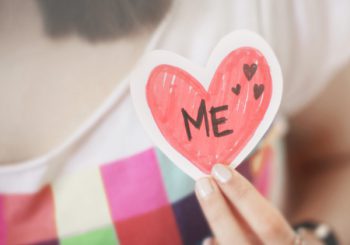Contributing writer for Wake Up World
We all love someone or something. Whether it’s our significant other, family, friends, pets, or even our material things, including money (whether we have it or not). We use the word “love” in casual conversation. “Hey! I love ya!” We even proclaim love where no love exists. Perhaps we do this because we believe that it makes us look good in the eyes of others since many put more weight on words than on actions. Or perhaps this is our attempt at reaching for what our hearts yearn for most in a material-driven world.
[pro_ad_display_adzone id=”110028″]
What we consider love can spark a myriad of other emotions, including those that lie on the darkest side of ourselves. Wars have been fought in the name of love, whether the love of another person or the love of our God over your God. This sparks a profound question—is it possible that true love in its purest form can spawn opposite emotions which in turn can drive us to kill, in the name of love?
How is it possible that those who we proclaim to “love” are the ones we can hurt the most? Can this truly be love?
And mind you, there is no evidence, other than how we feel, that love even exists, even though this immense power that we call love can drive all of our actions.
Love is not a tangible thing that we can just set aside whenever we choose, though many of us surely try hard to do so. We often convince ourselves that we must follow our heads rather than our hearts because we all know the heart is rarely practical.
We deny our hearts with excuses revolving around our careers, convincing ourselves that other “priorities” must take precedence, or we use the worst excuse for abandoning love – money.
We are then left with a void that we have willingly created, and ironically we attempt to fill it with other things we say we “love”, such as material objects, comfort food, alcohol or perhaps even meaningless romantic interludes. We may even angrily lash out at the very people we have shut out, despite our heart’s desires. Anything to dull the immediate pain, only to later regret our actions when it is inevitably too late to take them back, only compounding our emptiness and sadness.
I believe that “love” is the most inappropriately used word, and has been diluted so dramatically that the very core of its meaning has been largely lost.
Interestingly though, despite all the accolades of love, there is one extremely important person who is often left out… and that person is you.
Many people find it very difficult to say these few simple words, “I love myself.”
This is likely because they simply do not feel it, or because they feel that to say “I love myself” actually denotes a negative connotation suggesting an egotistical, selfish, or worse, narcissistic nature. Yet willingly accepting the opposite would suggest a lack of self-esteem, self-worth, self-acceptance, and self-confidence. All of which equals a lack of self-love.
Why are these negative characteristics so easily accepted in our society—so easily accepted by you?
And when you deny your true self or your authentic self, on a subconscious level you then slowly start to move away from your true beliefs and passions. You might even forget what they were.
Since there can be no peace in living this way, you try to fill this intangible void with what is considered to be acceptable standards in other people’s eyes, and in this process, you deny yourself the honesty of who you truly are and forego the search for real love in lieu of the illusion of love.
The Illusion of Love
The illusion of love has many faces. Again, it can be a material thing, or the quest to find another person to love, and most importantly, who will love you back. It is the belief that when you find the “perfect” item or the “right” person, you will then be happy.
Let’s briefly talk about the latter.
Many times love is mistaken for the euphoria of a brand new relationship. Once that high dissipates, we are often shocked when the illusion of love wears off, and we are left with the same issues that we had before entering that relationship. Can you relate to this?
For this reason, many people move from relationship to relationship in hopes that somehow, somewhere, they will find someone who will make them feel loved and who will fill that void.
The same is true for the never-ending compulsion to buy more material things or the never-ending thirst to acquire more money.
Because in the end, you are still always left with yourself. And ironically it is only that self, the authentic self that can truly fill that void.
Don’t get me wrong it’s nice to have new things and to be free of the stress that comes with money issues. Of course, the birth of a new romance can be amazing.
However, it becomes complicated when despite acquiring new things or meeting the “right” people, unhappiness remains underneath the illusion of this happiness. Eventually, the illusion wears off, and again you are left with just yourself. As the saying goes, “No matter where you go there you are.”
Now, indeed, this isn’t a new concept. Yet many still deny this truth and try to comfort themselves by blaming their unhappiness on other people or their lack of material belongings.
Many times I found myself living out both of these scenarios, especially the blaming of others. Until one day it felt as though I was living my life in a perpetual déjà vu.
I found that even when I had all of the material things I thought I needed to be happy, in the end…there I was sitting amongst all of my possessions still feeling empty and alone. And the same thing had occurred with the people in my life. I would blame them for my unhappiness totally denying that I was the sole contributor to my own unhappiness.
This is what my head was telling me because of course, I wasn’t listening to my heart.
So now gone were the people my heart would have chosen, and now surrounding me were all of the people who I did choose with my “head.” And you know what? Not surprisingly…they were not filling the void either. So much for the choices made solely from my head!
There must be another answer.
[pro_ad_display_adzone id=”110030″]
And indeed there was.
I finally realized it wasn’t the people around me who needed to change for my life to turn around; rather it was me who needed to change.
I needed to examine my perception of not just those around me, but also, and most importantly, my perception of myself. It seemed my heart was right all along! I just needed to stop listening solely to my head.
But why did I do this? The answer came in a dramatic emotional wave.
I realized everything I did was solely to fit in, be liked, be apart of a group, be accepted…be loved.
And it was at that moment when I realized that I was lacking self-love, and drowning in a pool of self-criticism.
Was this a major part of the autoimmune condition I experienced? After all all those negative emotions I felt about myself certainly didn’t make me feel healthy, vibrant and full of energy. On the contrary, I felt depressed and experienced paralyzing anxiety. Could my thoughts and beliefs have contributed to the eventual manifestation of a physical illness?
I found it interesting that the works of people like Louise Hays, Candace Pert, Bruce Lipton, and other New Age pioneers of thought and health seemed to have come up with the same conclusion—your body is listening and responding to your deepest thoughts and beliefs that reside within your subconscious. This means that the energetic frequency of your body will always be obedient to those thoughts and beliefs.
So you can see how a lack of self-love can have a negative impact on your health.
Further, if you compound this with poor nutrition and a lack of physical exercise necessary for your body to eliminate accumulated toxins, the likelihood of the manifestation of a disease increases significantly.
So it’s not surprising that that the many works of Louise Hays (known for making the connection of emotions with physical and mental health conditions) continue to reinforce what science is now proving – that people who have a high sense of self-condemnation are the most likely to manifest an autoimmune disease, including cancer, cardiovascular disease, and so much more.
Think about it.
Anxiety, for example, is most prevalent among those who would be classified as Type A personalities, perfectionists, because they set unrealistic standards that they themselves usually can’t live up to, let alone those around them. And boy if those around them can’t live up to it, that type A personality is really quick to pass judgments!
That was me.
And to compound the problem, this can leave the type A personality feeling, even, anger. Because imagine, if you can live up to your own standards how do you think that makes you feel about yourself?
Feeling as though I was never good enough, and worse than that…I was quick to pass judgments when I felt others were not good enough either.
Have you ever been guilty of this?
We are so good at passing judgments based solely on assumptions while most of the time it isn’t even true.
To prove my point, take a moment and play this little game.
Just sit on a bench and watch the people going by. Yeah, I’m talking about people watching! Take notice of how quickly you make assumptions as to why that woman “looks like that”. Or why that man “looks mean”. Or why that child is “out-of-control”. I bet you have all the answers, don’t you?
Now, look closer. Beyond what you “think” you know as “truth”. Is it possible that there is more than what you see? Well, of course, there is! And in most cases, your initial assumptions couldn’t be farther from the truth!
We never truly know what someone else is going through. So why is it so easy for us to make assumptions about them?
I often find myself in situations in which I am waiting for a group fitness class to begin, attending a social gathering, or even a family event, and because I am now more observant of concepts such as perception, assumption, and judgment, I see how often we incorrectly assess a particular person or situation. Oh, I’ve said it before and I’ll say it again, how we love to gossip! The juicier the better too – it doesn’t matter whether it’s true or not, because that is irrelevant.
If gossiping is so hurtful and disrespectful, we do we do it?
There have been many studies trying to prove that this phenomenon is nothing more than our brains sussing out potential competitors and finding ways to satisfy the need to feel superior, the basic primal concept of the survival of the fittest. Some even feel these are fundamental characteristics embedded within our genes to ensure the best possible outcome.
I may have once believed that this is a plausible possibility, but I no longer believe it to be true. Why?
Because our perceptions can change in an instant.
Don’t believe me? What about a simple smile?
No matter how bad you believe your day to be, a genuine smile can instantly change everything!
It has long been known that simply smiling improves your mood, increases blood circulation to your face and head, and strengthens your facial muscles allowing for a more youthful look, and the overall positive energy that this brings about boosts your immune system. Think about it this way…when was the last time you heard someone say “I was so happy and laughed so hard that I got a cold?” Probably never!
Yet how often do you come in contact with someone who is grieving or is chronically angry who suffers from a lowered immune system, and hence comes down with a cold?
So what is the point of all this?
Well, we don’t have to be ruled simply by our primal reflexes, but instead can change our situation by changing our perception of our situation! And this means that we can take control of our lives.
But first, we need to investigate how we perceive ourselves, as this is vital to obtaining a sense of true peace and a feeling of true love. Self-Love!
By changing perceptions and judgments that we have placed on others and upon ourselves, we can begin the process of loving who we are—our authentic selves.
And once we do that, the changes that occur from the inside out (and that includes our health) will instantly become apparent as we begin to heal, regenerate and thrive!
Originally published at onlineholistichealth.com and reproduced here with permission.
Recommended articles by Dr. Michelle Kmiec:
- Have You Ever Asked Yourself, “How Did I Get To Where I am In Life?”
- Change How You Perceive Yourself and Love Who You Are
- Ready to Make Life Changes But Don’t Know Where to Begin?
- Could Glutathione Be the Key to Slowing the Physical Aging Process?
- Serrapeptase: an Enzyme That Treats Inflammation, Arthritis, Scar Tissue and More
- The Truth About Insomnia, Depression and Anxiety
- Natural Cure for Depression Silenced?
- The Link Between Stress and Intestinal Parasites – and What to Do About Them
- The Sun and Skin Cancer: the Truths, Pseudo-Truths and Lies of Mainstream Science
- A Natural Cure for Migraines
About the author:
 Dr. Michelle Kmiec is a board-certified chiropractic physician who also holds a Bachelor of Science degree in Human Biology, and a minor in Medical Research. She is a life-long athlete who after curing herself 100% naturally from MS and chronic anxiety, became an avid nutrition health researcher/promoter.
Dr. Michelle Kmiec is a board-certified chiropractic physician who also holds a Bachelor of Science degree in Human Biology, and a minor in Medical Research. She is a life-long athlete who after curing herself 100% naturally from MS and chronic anxiety, became an avid nutrition health researcher/promoter.
She has been featured in many Health magazines and has been a guest on radio talk shows in the USA, Canada, United Kingdom, and Australia. She is the author of the book “Healthcare Freedom Revolution: Exposing the Lies, Deceit and Greed of the Medical Profession”, Founder of Online Holistic Health, and a contributing writer for other popular informative health website/blogs. She is also co-founder of Crazy Meets Common Sense! – the Podcast that makes sense out of the crazy, to help you live a more healthy, fulfilling and empowering life!
For more, visit OnlineHolisticHealth.com or connect with Dr. Michelle Kmiec on Facebook, Twitter and LinkedIn.
[pro_ad_display_adzone id=”110027″]







